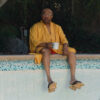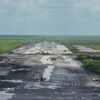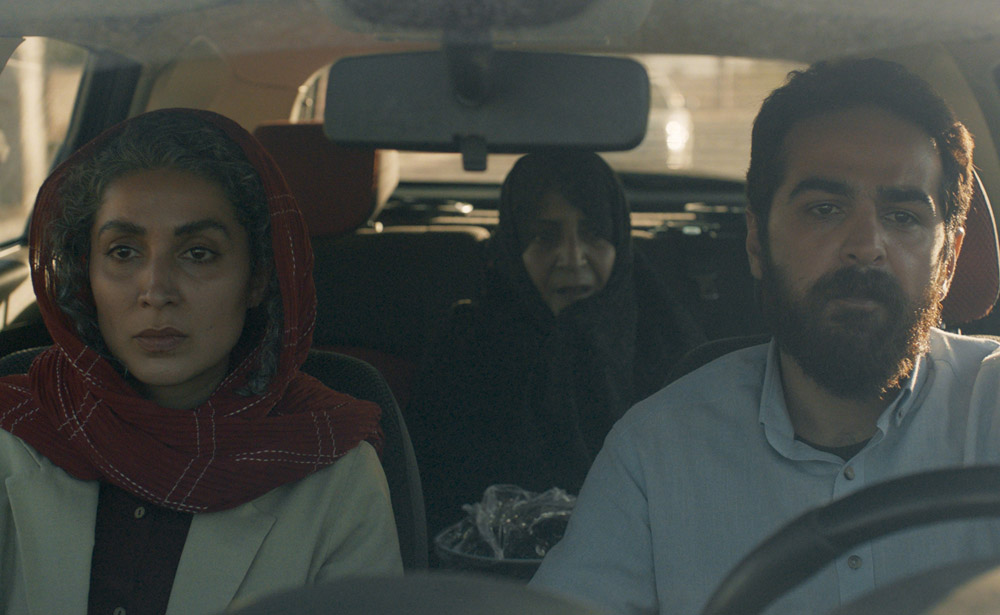“It’s where the people with the pain are,” Farid (Mirsaeed Molavian) tells someone about why he decided to go into hiding at a hospital in “Achilles,” an unusually direct answer for someone who has left his father (Firouz Agheli) and fiancé Sana (Neda Aghighi) for reasons that are murky at best. His friend Masoud has done him a favor by setting him up in the Achilles Technical Orthopedics Office where with no medical experience to speak of, he can attend to patients needing to put strained or broken bones in casts and slings and honoring his wishes, you don’t necessarily see him at first when he’s part of a busy introductory frame in Farhad Delaram’s slow-burning drama, helping someone get into a neck brace, but easily fading into the background. Laying low simply isn’t in the cards for Farid, whose bedside manner isn’t all that great for the purposes of a hospital and who clearly is qualified for more than his temporary job will allow, though his interest is piqued after being invited down to the psych ward where he’s asked to apply a brace to Hedieh (Behdokht Valian), a patient who must be as frustrated as he is when her wrist is shattered, thanks to punching the hospital’s walls.
Hedieh needn’t explain herself to him when he isn’t about to explain himself to anyone else and Delaram finds the closest ties in the pair’s native Iran may be amongst those who carry no baggage into each other’s lives when the country’s strictures have imposed unspeakable anguish. “Achilles” literally sees Farid attempt to put a bandage over the situation when Hedieh complains of noise bursting into her room that has prevented her from sleeping, putting medical masking tape up to cover the cracks to calm her nerves, but it’s obvious this won’t do and the gesture is the final straw for Masoud when his superior steps in to complain about Farid defacing the walls, leaving the two in an untenable position where hitting the road seems like their only choice. Although Hedieh is a complete blank, with no medical history or family to speak of coming up when Farid looks into her records, his life starts to come into focus as he tries to help her out, knowing there’s a place to stay from his old life, an apartment with Antonioni posters and family photos that suggest happier times.
Personal details about both characters are passed along at the rate of a morphine drip, which is fitting when getting comfortable with one another after developing such distrust and contempt for others is part of the healing process and “Achilles” manages to speak to a society that’s been picked apart and undone as one learns of how Masoud and Hedieh’s families have, sometimes for reasons no more than losing their sense of purpose. At times, the first feature from Delaram can come across as slightly too abstract or could use some tightening up, but there’s a languorous fluidity to the experience when following Farid and Hedieh on a road to nowhere that seems as truthful as anything else expressed along the way in their conversations.
Working with cinematographer Mohammad Reza Jahanpanah, the director has an eye for striking visual compositions, but also a real feel for the film’s tone, informed by the idea that everything in this particular reality has become reasonable when everyone is resigned to the worst, yet everything seems like a mystery when it doesn’t have to be this way, nor should it be. If it’s the people at first that appear as enigmas in “Achilles,” it’s the place they reside in that becomes one by its end, but rather than letting a lack of definition confuse and confound as it has now for generations, “Achilles” finds hope in an amorphous shape when those with as strong a vision as Delaram can build it anew in their image.
“Achilles” does not yet have U.S. distribution. It will next screen at the San Sebastian Film Festival on September 25th at the kursaal 2 at noon and Principal at 2:15 pm, September 26th at 6:30 pm at the Trueba 2 and September 27th at 4:15 pm at the Trueba 2.




